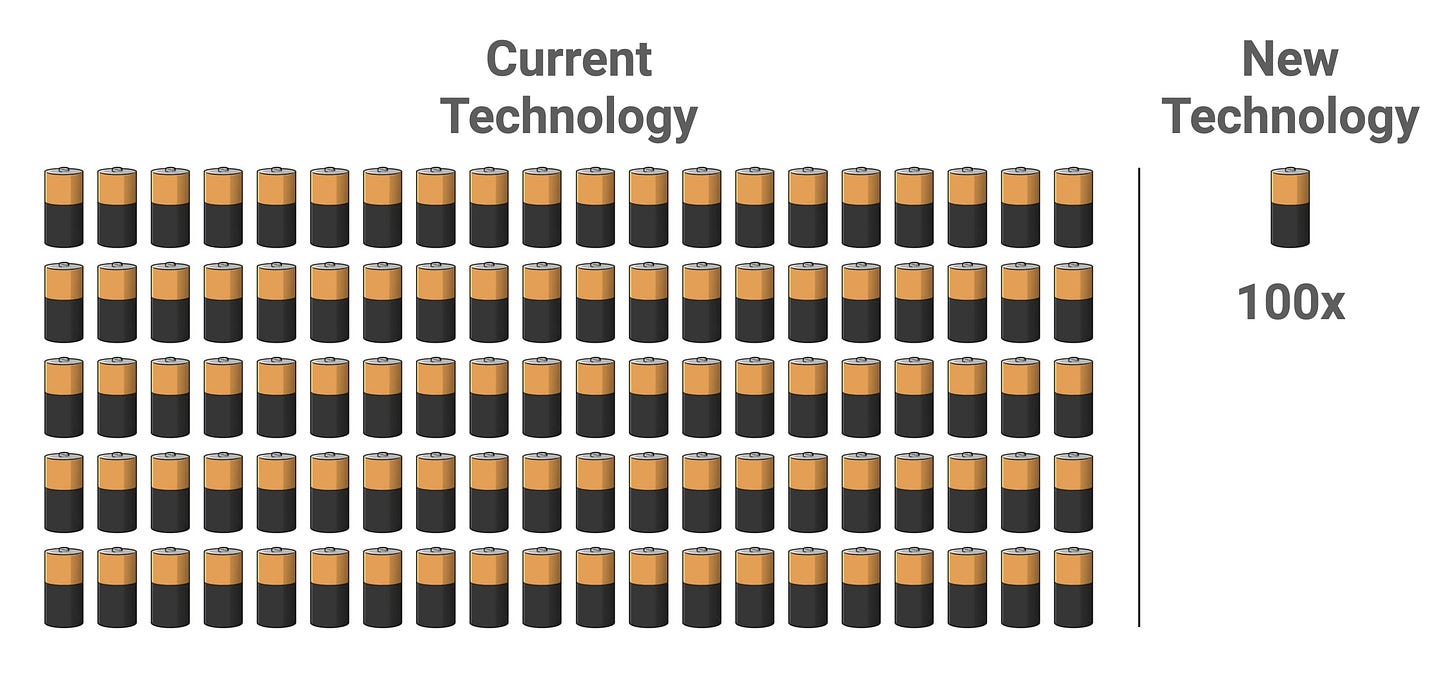Japanese electronics company TDK has developed a material for its solid-state batteries with an energy density that is 100 times greater than their current technology. The use of oxide-based solid electrolyte also makes batteries extremely safe. The Financial Times notes that “Solid-state batteries are safer, lighter and potentially cheaper and offer longer performance and faster charging than current batteries relying on liquid electrolytes.” While there are still technical challenges to scaling up mass production, the findings are very promising.
Most innovations are continuous, improving a bit each day. But sometimes they are punctuated, with dramatic increases that are almost instantaneous. In the early 1860s the Pony Express reduced the time to deliver a letter from St. Joseph, Missouri to Sacramento, California from 25 days to 10 days. Eighteen months later the telegraph reduced the time to less than ten minutes.
What we note here is that discovering new knowledge can be exponentially valuable. We see that AI development has been a series of “stair steps” as new knowledge is discovered.
All of this progress in AI is based on the development of hardware that enjoys vast learning curves as production scales up and the cost of making a calculation drops to almost zero. Nvidia has become the most valuable company on the planet because it produces the engines for this new growth in knowledge. Knowledge begets knowledge. The more knowledge we share and consume the more we discover and create.
In terms of the material world, atoms without knowledge actually have no economic value. We transform atoms into resources by adding knowledge. Since there are no bounds on the knowledge that can be discovered, our resources can be infinite. TDK is about to make batteries 100 times better. What valuable new knowledge will you discover and share to make life on earth better?
Please share Gale Winds with your friends!
We explain and empirically demonstrate why more people with freedom means much more resource abundance in our new book, Superabundance, available at Amazon. You can read more at superabundance.com. There has never been a better time to create more life.
Gale Pooley is a Senior Fellow at the Discovery Institute and a board member at Human Progress.








Wikipedia lists lithium ion as having an energy density of 250–693 W⋅h/L
The article you linked says " energy density of 1,000 Wh/L, approximately 100 times greater than the energy density of TDK’s conventional solid-state battery."
Firstly 1000 is a bit suspiciously round. So is 100.
But assuming the numbers are rougly true, that would make the tech something like a 50% improvement on the current best lithium ion batteries. Which is plausible.
(100x is less plausible just because few chemical reactions store that much oomph)
So this is a 100x improvement compared to some rubbish battery that people weren't using.
Interesting to see how this turns out. Battery development has seemed painfully slow and one of the areas that’s really fallen behind in exponential advancement it seems. This sounds like a big step forward, but probably a ways out from mass production.